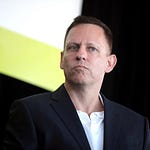People often say that we live in the “information age.” But what does that mean? It means that people living today on earth have the world’s knowledge at our fingertips. All of us can read high quality scientific research, even before it’s published in academic journals. You can look up everything from great lasagna recipes to the latest news about Malaysian politics, and everything in between.
Having the world’s knowledge digitized and made available to everyone has truly been a great thing. But it’s come with a downside. Not only can we know more than ever, we can also be misled more than ever.
That point has become abundantly and dangerously clear during the Covid-19 pandemic. The conspiracy theories and lies about the coronavirus have spread worldwide and become believed by millions of people. Tragically, many people have died from believing falsehoods about vaccines, masks, and fake cures for Covid.
But what can be done about all this misinformation? Unfortunately, there are no easy answers. One good one, however, is to spread greater awareness of critical thinking so that we can do more than just obtain information, but actually acquire knowledge.
Knowing how to think rather than what to think is the most-needed skill of our time. But whose responsibility is it to teach critical thinking? In my opinion, it’s one that belongs to all of us. Not only do we all have beliefs that are untrue, those of us who are aware of the importance of logical thinking have the responsibility to spread that knowledge, and to practice it ourselves.
In this episode of Theory of Change, we feature Melanie Trecek-King, the creator of a project called Thinking Is Power. It’s a great online resource for teaching and learning about critical thinking skills. As we’ll discuss on this episode, the project was inspired by, among other things, her experience teaching biology to students at a community college in Massachusetts.
MEMBERSHIP BENEFITS
This is a free episode of Theory of Change, but the deep conversations we bring you about politics, religion, technology, and media take great time and care to produce. Your subscriptions make Theory of Change possible and we’re very grateful for your help.
Please join today to get full access with Patreon or Substack.
The deep conversations we bring you about politics, religion, technology, and media take great time and care to produce. Your subscriptions make Theory of Change possible and we’re very grateful for your help.
If you would like to support the show but don’t want to subscribe, you can also send one-time donations via PayPal.
If you're not able to support financially, please help us by subscribing and/or leaving a nice review on Apple Podcasts. Doing this helps other people find Theory of Change and our great guests.
ABOUT THE SHOW
Theory of Change is hosted by Matthew Sheffield about larger trends and intersections of politics, religion, media, and technology. It's part of the Flux network, a new content community of podcasters and writers. Please visit us at flux.community to learn more and to tell us about what you're doing. We're constantly growing and learning from the great people we meet.
Theory of Change on Twitter: https://twitter.com/TheoryChange
Matthew Sheffield on Mastodon: https://mastodon.social/@mattsheffield
Matthew Sheffield on Twitter: https://twitter.com/mattsheffield
This is a public episode. If you’d like to discuss this with other subscribers or get access to bonus episodes, visit theoryofchange.flux.community/subscribe












